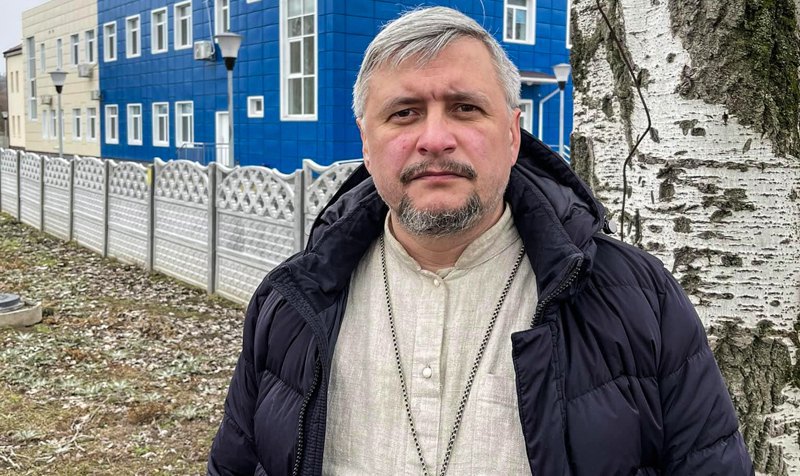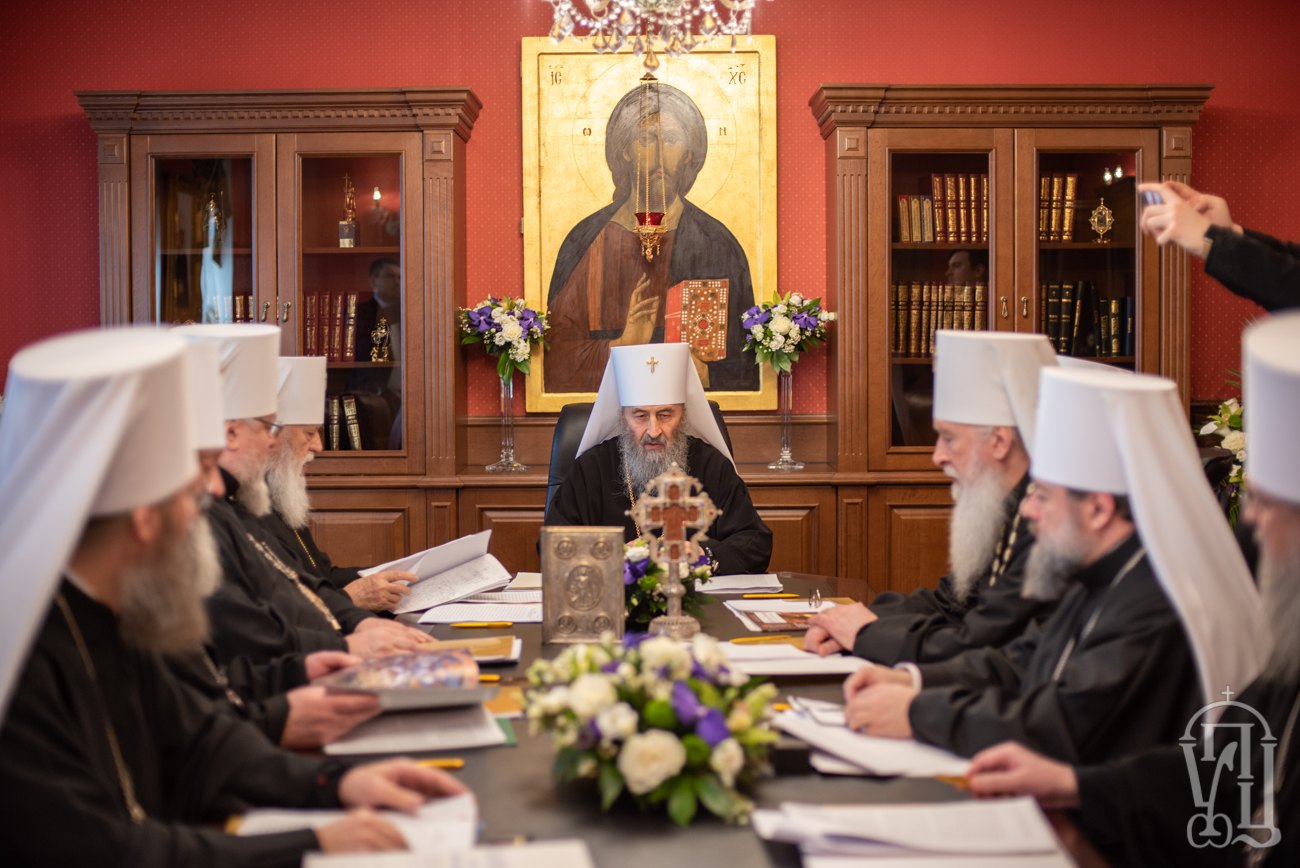Let us begin with the conclusions regarding the Synod.
There can be only one conclusion: our Synod participants are avid astronauts.
Hard to disagree.
And more specifically, we can just go through the decisions that were made, and it will become clear that the Synod seems to be trying to solve problems... But only those where the situation has clearly been overdue and very inconvenient for the Synod. This is not about singing in the Lavra, not about Metropolitan Pavlo (Lebid) or Metropolitan Ionafan Yeletskykh, who has already been served with a suspicion.... If you read the statement of the Synod, Ioan is short of a hero for the UOC and for Ukraine, there is such a wording.
I wonder how ordinary priests and parishioners of the UOC (formerly of the MP) perceive this, there are still many patriotic people there. Why - I do not understand, but this is a separate story.
Most of the faithful and priests are disappointed with the decisions of the Synod. First, they expected a clear pro-Ukrainian position, but it was not there. Second, the condemnation of collaborationism in accordance with the canonical rules of the church. Let me remind you that the canonical rules are a kind of church constitution that is binding on all members of the church. In addition, there is a rule that betrayal of one's state is a strict canonical crime in the eyes of the church; those who do so must be expelled from the church. They do not even have the right to enter the church anymore, but must pray in the street and – with tears – beg for forgiveness from everyone who enters the church to pray (The Book of Rules of the Holy Apostles, Holy Ecumenical Councils and Local and Holy Fathers, the section "Canonical Epistle of St. Gregory, Archbishop of Neocaesarea, the Wonderworker", Rule 8 – Koshkina).
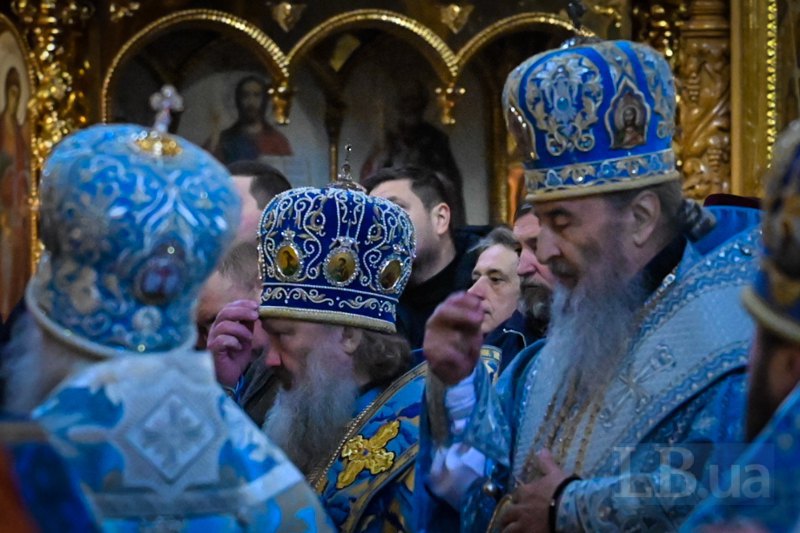
Unfortunately, this is not about our church. I have repeatedly said that the UOC is now experiencing the most severe canonical crisis in its entire existence. Most of the canons are unknown, they are not used in any way, and the canon law is not implemented in the UOC. Now there are two purposes for which the canons are used: the first is to constantly prove that the OCU is a non-canonical church, and the second is that Patriarch Bartholomew is not a good person.
Not only your faithful and clergy are disappointed, but the whole Ukrainian society. There were many hopes for this Synod. Of course, nothing revolutionary, but at least something.
I will just remind our readers of the latest, most egregious cases. Metropolitan Ioasaf of Kirovohrad had numerous searches, Metropolitan Ionafan of Vinnytsya was searched and served a notice of suspicion. Yelysey of Izyum and Iosyf of Rivne abandoned their chairs and fled to Russia. The Metropolitan and two other priests from Melitopol and Kherson attended the celebrations of the "accession of new territories" in the Kremlin.
In fact, the Synod kept mum about the first two, except for that scandalous statement. The next two were quietly retired as if nothing had happened and their replacement was a purely technical matter. Not a word about the last three either.
Why? This is contrary to the interests of the UOC, which is allegedly not of the MP.
As far as I know, the important Council held in Feofaniya on 27 May was prepared personally by Metropolitan Onufriy.
I will clarify this for readers: Feofaniya is the residence of Metropolitan Onufriy, that is, the event was held on his territory.
Yes.
Metropolitan Onufriy not only prepared the Council on 27 May, but also sidelined Metropolitan Antoniy (Pakanych), who is the main mouthpiece of all pro-Moscow narratives in the UOC, the the "handler" assigned by the Kremlin and Kirill (Gundyaev) to the UOC.
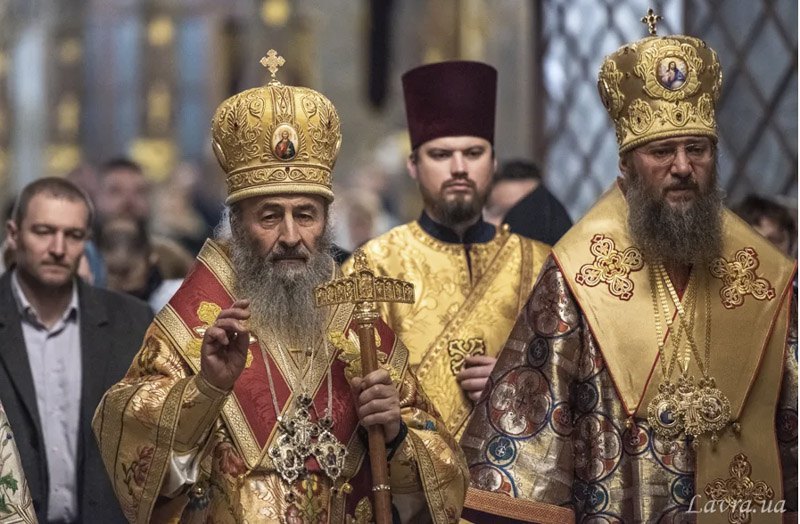
But recently, everyone was struck by a photo from Munich, as I understand it, or from some other city in Germany, where Vadym Novynskyy, Metropolitans Onufriy, Antoniy (Pakanych), other hierarchs are sitting at a table and lively discussing something. After this photo, everything became clear - our church no longer expected pleasant surprises.
So, according to my information, the current meeting of the Synod was prepared by Metropolitan Antoniy (Pakanych). Moreover, 10 days before it, he even stopped performing his main duties in order to finish the preparations in time.
When we learned about this in narrow circles, it became finally clear that, perhaps, some personnel issues were agreed with Metropolitan Onufriy, but in general, that shameful silence – as well as the shameful words that were heard during the Synod – is the result of the work of the "pro-Moscow party" in the UOC.
Essentially, I agree. When it became known that the Synod would be held in the Lavra, everything became clear. But I want you to explain to our listeners and readers why Pakanych has such broad rights, and Metropolitan Onufriy allows him to do it?
I do not have an answer to this question, it can only guess, I honestly do not know. I cannot understand it. Still, Metropolitan Onufriy has levers to limit Metropolitan Antoniy Pakanych's influence on internal church affairs. This was done once in a lifetime during the preparation of the 27 May Council in Feofaniya. Now, in the same way, we can say, Metropolitan Antoniy is back on the horse, he prepares, he does, he holds, that's all.
I am waiting for the Security Service of Ukraine to find his Russian passport, which he had at least in 2009, I do not know how it is now. I would also like to discuss the personnel decisions concerning Metropolitans Ioasaf of Kirovohrad and Ionafan of Vinnytsya. The first one was searched by the Security Service of Ukraine not once but twice, he has already been served with a notice of suspicion, the second one has only been searched so far, but I think the suspicion will not be long in coming. Why were they not personally convicted, and Ioasaf was transferred from the Kirovohrad diocese to Kyiv? To a lower position, but still?
In general, we have, as I said, such a vicious rule in the church... This applies not only to the UOC, it applies to all Orthodox churches in the post-Soviet space or even wider – to all those who somehow depended or depend on the Russian Orthodox Church...
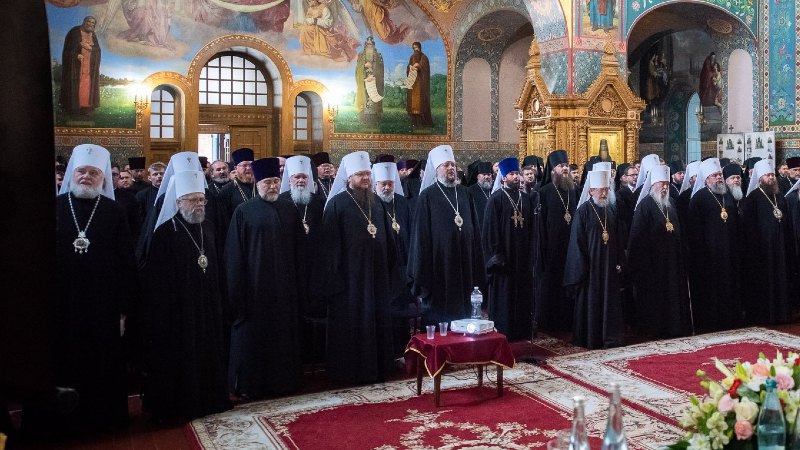
So: if you are a bishop and have committed the most severe, most terrible criminal offence, we will not turn you in. Even if you committed a crime that has nothing to do with Christian life and the Orthodox Church, we will not turn you in. Bishops today are a narrow caste that is cut off from the church, cut off from church life. These are people who live mostly in golden cages and they support each other, because they understand that if you put at least one of them on trial, then maybe they will come after the other. That is all. Therefore, they are trying to the last, even, for example, with the same Ioasaf...
A close friend of Pakanych, I should add.
Still, he is losing – he will not serve nearly anywhere, some financial flows will stop, but these are details. Of course, the punishment should have been different. But the Synod executed it in such a way that for the public it looked almost like a promotion – "oh, he has already gone to Kyiv".
Actually, the story of Ioasaf is very interesting. Let's see: Ionafan was handed a suspicion, but he was not suspended, he did not go as a vicar to the Kyiv diocese. Ioasaf was not handed a suspicion, but he left. I think – this is my assumption – that they found much more at Ioasaf's during the searches than at Ionafan's, and it was, perhaps, just his some kind of, you know, promise that he would resign, go and vacate the chair. Otherwise I cannot explain what happened. Because I know the history of Ioasaf's ascension to the Kirovohrad diocese, he has been striving for a very, very long time to become a bishop, and now it is so easy to write a statement and leave (formally he wrote a statement for health reasons - Koshkina)? No.
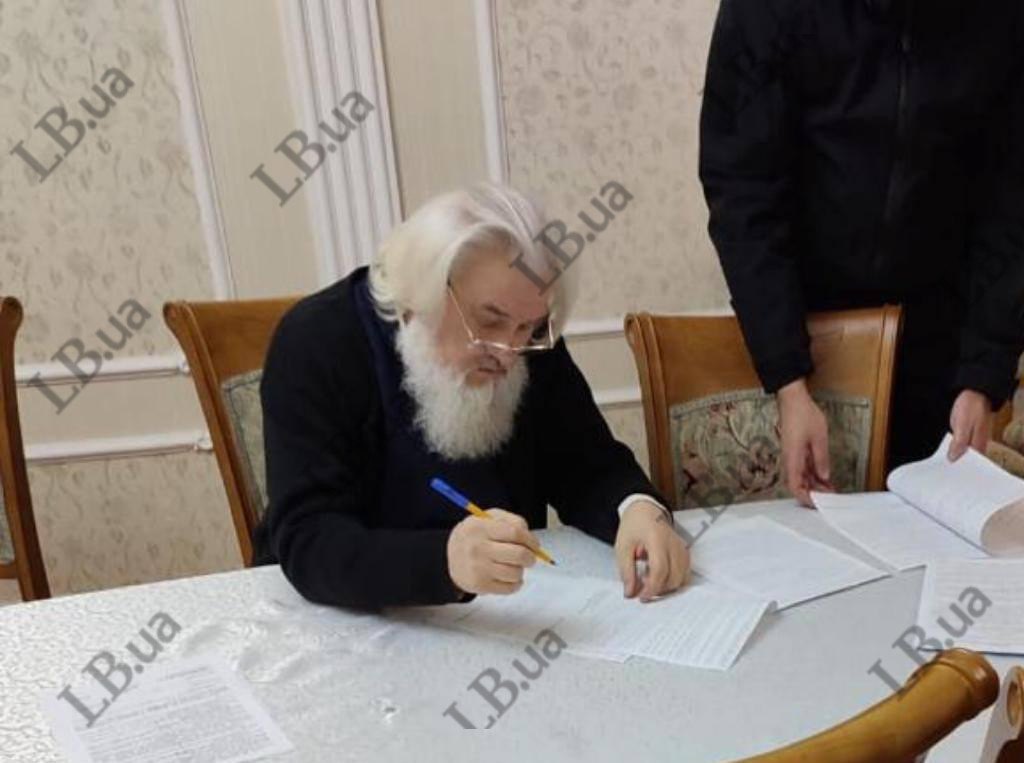
Father Andriy, at the beginning I noted that you became known throughout Ukraine after you initiated the collection of signature under an appeal to Constantinople on the need to convict Kirill Gundyaev by the court of the Pentarchy. This appeal has been signed by more than 450 priests of the UOC (of the MP at the time), and you said in an interview for Radio Ukraine that "there are already a lot of us, such ordinary priests who are outraged, and the higher hierarchs will not be able to ignore us". Tell us, how did the story with the appeal end, why have we had no news about it for so long?
We are still waiting for some reaction from Patriarch Bartholomew of Constantinople and his Synod. Just recently, we have seen such a reaction from the Patriarchate of Alexandria to the events in Africa (a year ago, the Russian Orthodox Church tried to create a kind of "DPR church" in the canonical territory of the Patriarchate of Alexandria, to annex and establish its parishes there. The reason is the recognition of the OCU by Alexandria - Koshkina) - they broke off relations with the Russian Orthodox Church and defrocked Metropolitan Leonid, the right hand of Patriarch Kirill, who was in charge of all this. I think this is the first bell that the Patriarchate of Constantinople is beginning to move towards condemning Patriarch Kirill. But I told you then and I will repeat it now that there is no such rule in the church that an appeal is sent and it should be considered, conditionally, within 30 days. So, we expect that the Synod of the Church of Constantinople will consider it when it deems necessary.
I would like to talk about the current status of the UOC, formerly of the MP. The 27 May Council in Kyiv decided to purge the statute of all references to the connection with the Russian Orthodox Church. After that, the highest hierarchs of the UOC declared that they are no longer of the MP and get very offended when this is mentioned now. But these amendments to the statute have not yet been published. Also, Metropolitan Onufriy did not send the representatives of the autocephalous churches the so-called peace letters on the change of the status of the UOC, although he had to do it. All this leads to a simple thought: the story with the statute is a manipulation, there are no real changes. Well, from the point of view of canon law, the UOC has been and remains part of the ROC.
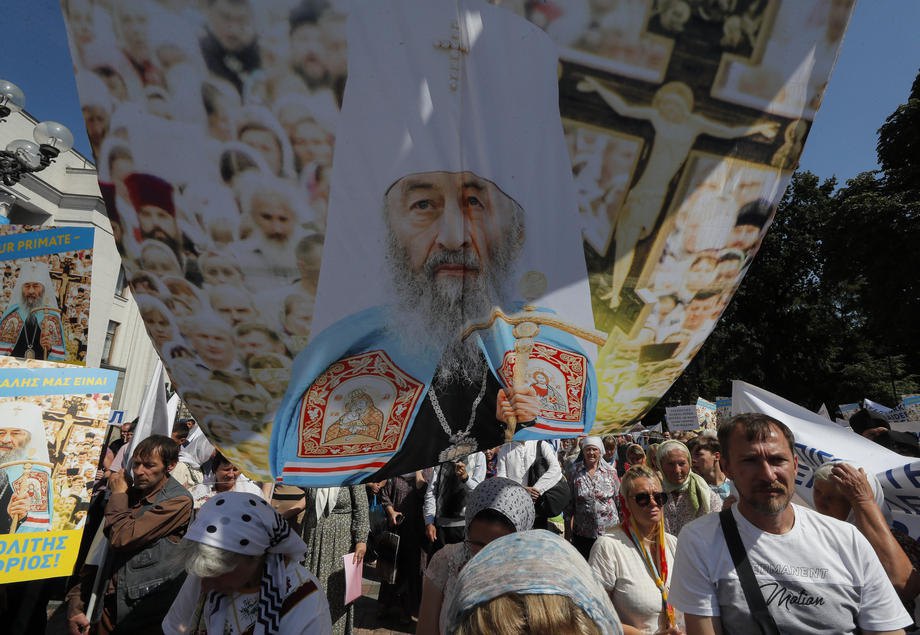
It is difficult for me to disagree with you. I am probably one of the main apologists of the 27 May Council in Feofaniya, and I believe that it was a breakthrough. But given the fact that the amendments were not really published, peace letters were not sent out, communication with the Patriarchate of Constantinople, with the Patriarchate of Alexandria, with other churches with which the Ukrainian Orthodox Church broke off contacts some time ago, when it was part of the Moscow Patriarchate, was not restored... From all this I can draw only one conclusion: the council in Feofaniya was prepared solely for the purpose of deceiving the Ukrainian state and Ukrainian society. There were no changes, there are no changes and there will be no changes. The UOC has remained and will forever remain a structural unit of the Moscow Patriarchate, will fulfill all orders from the Moscow Patriarchate, will distribute all the literature that is sent or printed by order of the Moscow Patriarchate or the FSB, will continue to pursue anti-Ukrainian policy, as it is happening now – maybe unofficially, but I know many such examples on the ground. For example, we have one church in Dnipropetrovsk Region, where on 24 February they toasted "the liberators, who finally came" at a festive meal after the service for the victory of Russia.
A very simple question, purely philistine: what should be done about it?
I do not know. You see, for me personally, the UOC is more than these corrupt metropolitans. For me, it is also about many good priests with whom I grew up, many faithful people with whom we took the path to Christ together. Many teachers who taught me and who now now offer support, including to me. Many people who identify themselves as faithful of the Ukrainian Orthodox Church and are now trying to do something to ensure that the UOC breaks away from Moscow and takes the path of Christ. But...
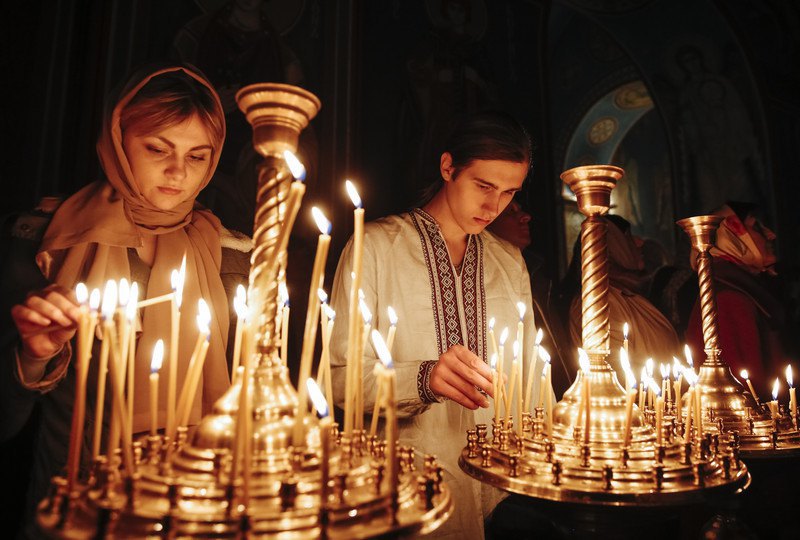
Against the background of all these events, the number of transitions from the UOC to the OCU has increased significantly. Whereas earlier, before 2014, the UOC-MP was the largest religious organization in Ukraine, now it is the OCU. The figures are approximate, but the OCU now has more than 5,000 parishes, and the UOC (formerly of the MP) has fewer than 5,000.
No, no. The UOC has lost a total of 600 parishes since the beginning of the war. And after 2018, almost a thousand parishes moved or were transferred – I usually use these two terms together, separated by commas – to the OCU.
Count Crimea, count Donbas.
Well, if you count it that way – without Crimea, without Donbas, it is possible. Now it is difficult for me to calculate it by dioceses.
Speaking of Crimea, let me remind you that the Crimean parishes did not recognize the decisions of the 27 May Council, and the very next day they issued a joint statement that they prefer to remain under the omophorion, under the command – in secular language – of Moscow. Just a few days later, the Synod of the Russian Orthodox Church gathered in Moscow – and, of course, they gladly accepted the Crimean parishes. At the meeting of this Synod, I expected some reaction to this event, at least some...
Very good question, thank you for it. I will tell you what the Ukrainian church should have done according to canon law. All of these bishops and metropolitans of the three Crimean dioceses and the diocese of Rovenky (Luhansk Region) betrayed their oath of allegiance to the Ukrainian Orthodox Church and joined the Russian Orthodox Church. If we take into account purely ecclesiastical laws, the Synod had to remove them and appoint new bishops, temporary leaders to all these dioceses. It is clear that these new bishops would not have been able to reach their chairs, but it would have been, firstly, a very important sign for the UOC itself; secondly, a correct canonical decision. Thirdly, it would show all other bishops, metropolitans that the Synod of the UOC will not tolerate collaborationism in its ranks. And most importantly, the fourth: tomorrow Ukraine will liberate these territories, the traitors will run to Rostov, and bishops must be ready to come and arrange the life of these parishes. Including parishes in Crimea and Rovenky, where priests and parishioners remained loyal to Ukraine and are just waiting for victory. What a support it would be for them!
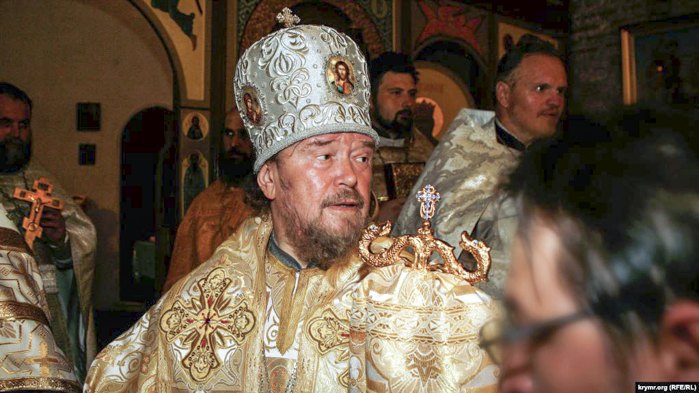
I'll tell you more, Sonya, you will laugh now, Metropolitan Lazar of Crimea, who betrayed his UOC church, who showed a finger to his church and said "I will go to the Russian Orthodox Church", this Metropolitan Lazar is still a permanent member of the Holy Synod of the UOC. According to his position, he had to join the last Synod, solve issues, vote and so on. He, of course, did not do this, but when at the Synod (this is accurate information, insider information) one of the members proposed to exclude Metropolitan Lazar at least from the Synod – this is a bloody shame – the Synod did not even do this. Because Metropolitan Lazar is such a condensed "Russian world", how can you exclude him?
Well, actually I'm not very surprised because Metropolitan Onufriy and his right-hand man Antoniy Pakanych are still members of the Holy Synod of the Russian Orthodox Church. They really don't go there lately, they don't even connect via Zoom, but it's all official, it's all on the ROC website. I definitely do not justify them, but perhaps the reason is that the mechanism of withdrawal is not spelled out.
I agree and disagree. The fact that the mechanism is not spelled out may be true. But if the amendments to the statute made at the 27 May Council were published, it would mean that the Kyiv Metropolitanate really informed the Moscow Patriarchate that it is withdrawing from subordination and will not participate in any synods, councils and so on. I can only guess why this has not been done and why even now the Russian Orthodox Church and its leaders, its speakers consider the UOC its integral part and continue to behave as if nothing has happened.
Finally, let's talk about the future. Actually, let's start with the future of the Lavra. There is talk that the lavras – there are three of them, let me remind you: Kyiv Pechersk, Pochayiv and Svyatohirsk – should be returned to the state. Each of these three lavras has a slightly different legal situation, but in general there are long-term lease agreements, which the Cabinet of Ministers can terminate. With some nuances, but it can. Do you think this will happen soon? (The conversation was recorded before President Zelensky made a statement to this effect - Koshkina).
No, I don't think si. I am 100% sure that the Ukrainian authorities are still afraid of the UOC influence, they are afraid of some decisions that could greatly complicate the existence of the UOC. They have just searched the most influential metropolitans supporting the "Russian world", but did not include in this list the main leader of the entire pro-Moscow policy of the UOC, Metropolitan Antoniy Pakanych. So no, I do not believe that the status of the monastery will somehow change. I think no-one believes in this – neither Metropolitan Onufriy, nor the members of the Synod, nor, of course, our glorious "hero" of the UOC, because of whom the whole church burns with shame, who has already turned millions of people away from the church, our out-of-hand Metropolitan Pavlo Lebid, who is the head of the Kyiv Pechersk Lavra. He does not believe in it either, no-one believes in it. Because it simply will not happen.
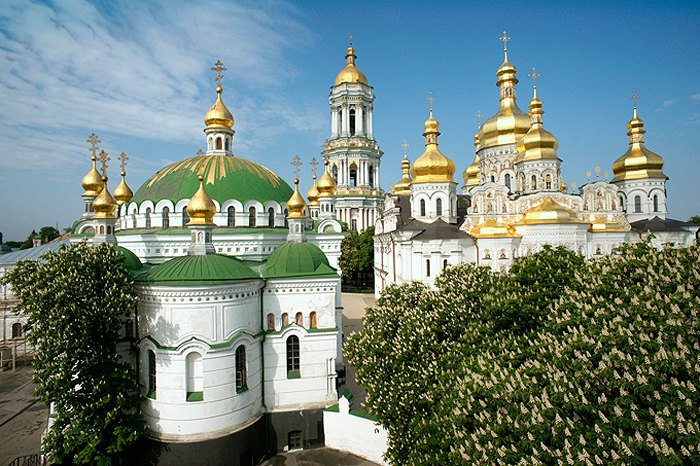
Well, I do.
Today the state is too weak, in my opinion, to take such steps.
We will see, we will see. Andriy, we know that Ukraine is a secular state, it does not interfere in church affairs. This is spelled out in the Constitution, which cannot be changed during martial law. However, we also know that parliament has already registered several bills on the legislative ban of the Ukrainian Orthodox Church, formerly of the Moscow Patriarchate. A similar thing happened in Latvia, but there the church itself was the actual initiator of such changes. Do you think that any workarounds can be found to regulate this situation by law today?
Well, first of all, I do not see that this bill, honestly, somehow contradicts the Constitution (we are talking about the latest initiativefrom the European Solidarity - Koshkina). You see, the separation of the church from the state does not mean that the church exists under its own laws. The state still has to issue, draw up a regulatory framework for the entire religious community. Thinking that the church is separated from the state, so the church lives by its own laws, it does not care about the state – this is a professional deformation after Vladimir Lenin, who first introduced this idea. No, in no European country is there such a religious mess as in Ukraine. In any country, there is legislation that regulates, including financial legislation that regulates church finances. This legislative gap which exists in Ukraine concerns not only the UOC but the whole religious life, it must be addressed somehow. There should be a list of religious laws that would regulate the life of religious communities in Ukraine. Once again: it is not only about the UOC, it is about any religious activity. Secondly, I do not understand, this draft bill, which was introduced by the European Solidarity, again says that the churches that have....
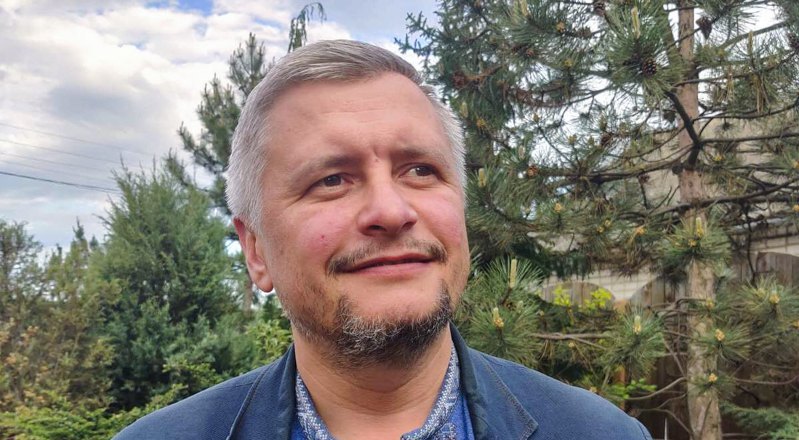
…the administration centre on the territory of the enemy state, the aggressor state…
…or connected to it. So, the UOC will say: we had the Council in May, we are not connected.
But in general, I am sure that parliament will not vote for these laws. Look what happened when they tried to ban the UOC on the territory of certain regional councils. The decision was taken by western regional councils where the UOC is almost not represented or represented very weakly. Now there will be a vote in the Vinnytsya regional council, it will be symptomatic, because firstly, there is Ionafan in Vinnytsya Region, and secondly, there is a large, very large number of parishes of the UOC and certain regional councilors are still somehow connected with the UOC. Now there is a struggle, the Vinnytsya eparchy is trying to somehow defend itself, it sent an appeal to all councillors. This vote will be symptomatic. On the other hand, there was a vote in the Poltava regional council, which failed, and they did not ban it.
Finally, a philosophically provocative question: have you, by any chance, decided to move to the OCU yet?
No comments. I'll laugh, that's all.
I do not approve, but I understand.
